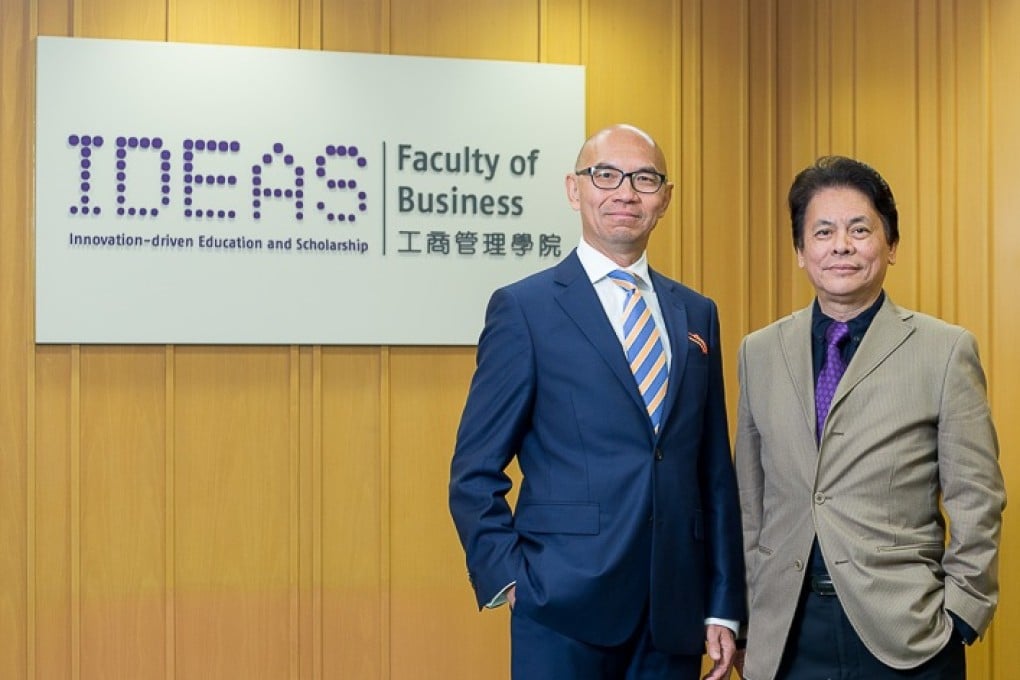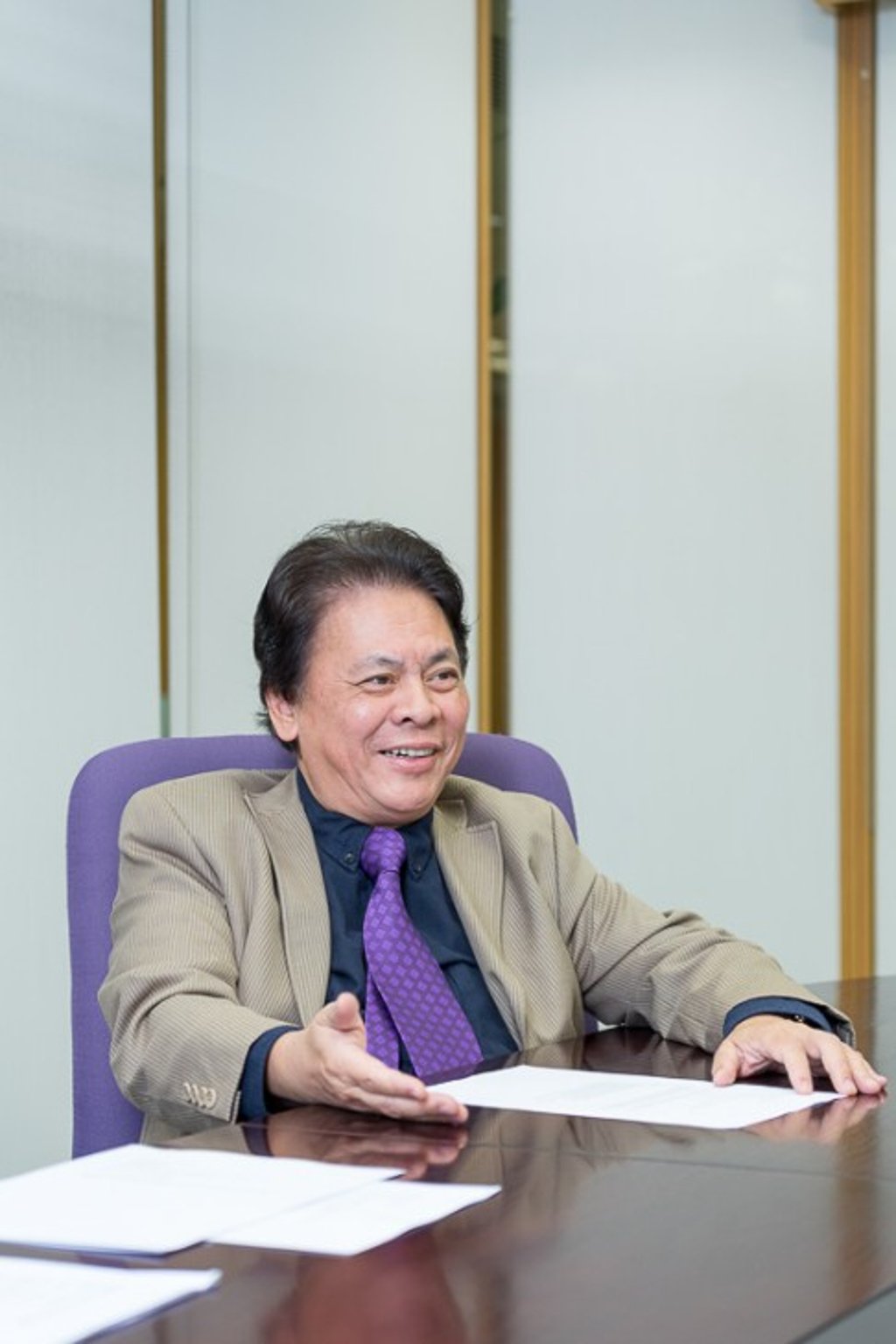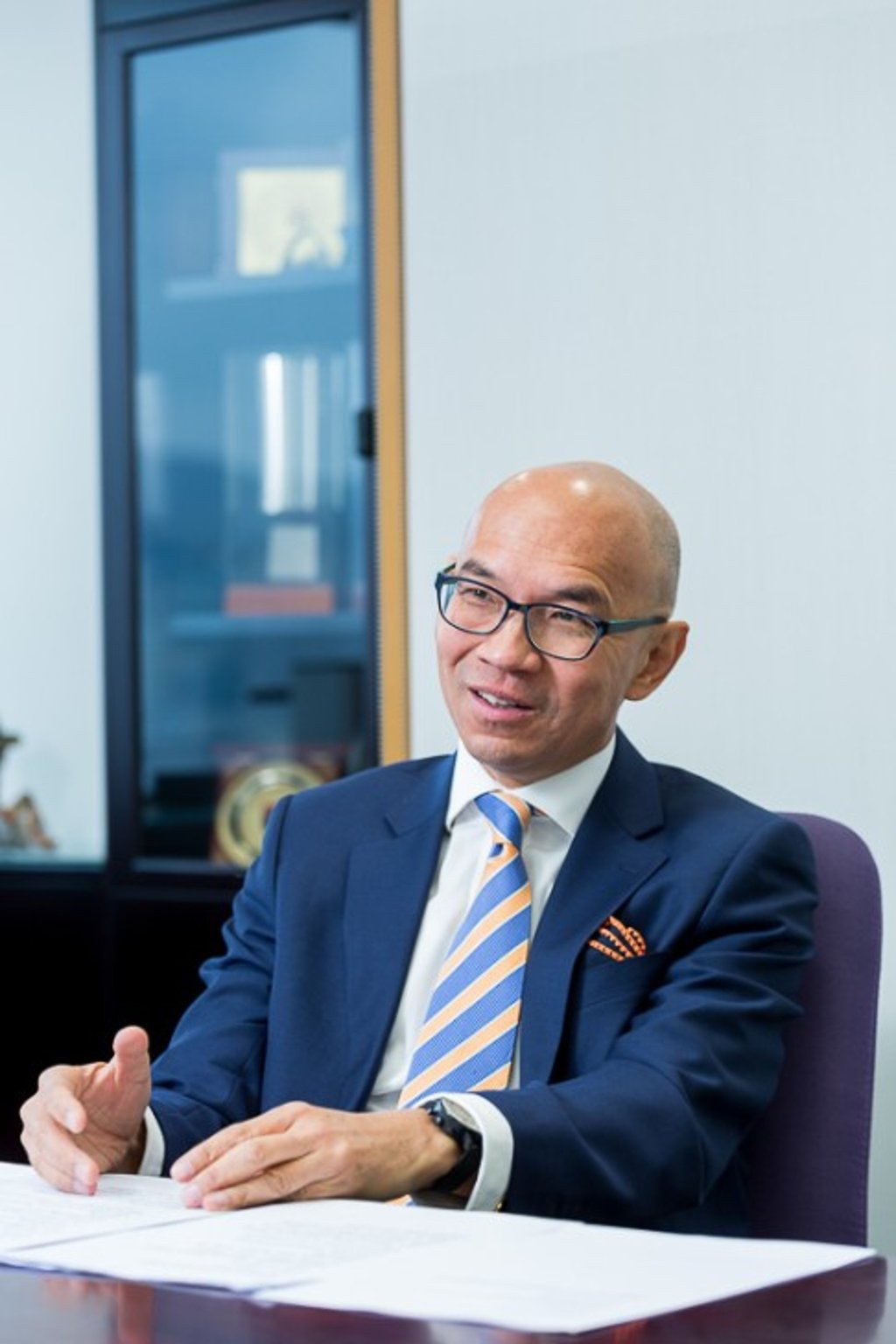DBA geared to nurturing Scholar-leaders who can solve real-world business problems

[Sponsored Article]
The stated aim of the DBA (Doctor of Business Administration) at The Hong Kong Polytechnic University (PolyU) is to produce “scholar-leaders”, the type of senior executives who want to apply their research findings to address real-world issues and complex business problems.
The part-time, credit-based programme does that by integrating academic study with practical experience in a dynamic learning environment.
It takes a rigorous, interdisciplinary approach, bringing students up to date with the latest developments shaping the broader business world and giving them the research skills and technical competencies to complete a thesis with direct relevance for their own industry and beyond.

“These days, with everything from globalisation to digital transformation, executives face new issues and immense challenges,” says Wilson Tong, DBA Programme Director and Professor of Finance in PolyU’s Faculty of Business. “We provide a framework to help them see the complexities, make the right strategic decisions, and conduct original research on an area of special interest in the field of business or management.”
Students start off with eight taught subjects – one compulsory and two core subjects, and five electives for a total of 24 credits. They also do two residentials, each lasting two or three days, before submitting their thesis proposal and moving ahead with the two-stage process of data collection and writing. Altogether, 51 credits are required.
The introductory subjects deal with business analysis, statistical analysis, econometrics methods, qualitative research and experimental design.
“The initial focus is on technical and statistical training; we teach the requirements and expectations from our perspective,” Tong says. “There are also workshops during which students present their ideas on possible research topics and get feedback from professors and the rest of the class.”
Electives are chosen from a 17-strong list that includes subjects like advanced financial management, independent studies in business, frontier of leadership research, reporting and corporate disclosures, current issues in organisational behaviour, strategic marketing, and international collaboration. The classes are generally built around analysis of theories put forward in recent journal articles and academic papers.
“Our faculty lead discussions on cutting-edge research in different areas of business,” Tong says. “It’s not case studies or ‘ivory tower’ teaching, but the latest thinking on marketing, management, finance, and information systems. We look at areas like fintech, cross-border mergers and acquisitions, and critical success factors in various industries. Students can integrate all this in their day-to-day work, and draw on it in developing ideas for their thesis.”
The DBA also offers an international element through partnerships with the International Institute for Management Development (IMD) in Switzerland and the LSE (London School of Economics and Political Science).
This gives the opportunity to take one-week programme or executive education courses overseas and, incidentally, to network with new contacts from around the world.
In finalising a thesis proposal, each student works with a supervisor, usually an associate professor or above, who is there to guide and advise. The basic aim is to identify and solve practical business problems, but the supervisor also ensures an academic rigour with intellectual value.
Typically, there is debate and revision before a thesis proposal gets the green light. A suggested topic may initially be too narrow, little more than a standard case analysis. Or it may be too broad to allow for viable data and meaningful conclusions.
The end result, though, will combine academic merit, significant findings, real-world applications, and the potential for publication.

“Ideally, you should choose a topic you cannot stop thinking and reading and talking about, otherwise the journey will be more challenging,” says Dr Stephen Ko, a business consultant for Thai-based PTT Global Chemical who completed the DBA last year.
An engineer by training, his thesis focused on corporate governance, examining how different companies address industry constraints and shareholders, while also respecting the need for social and environmental responsibility.
“It’s a huge subject, but I chose an accounting and finance perspective rather than looking at organisational behaviour or strategy,” Ko says. “Working for multinationals, I always tried to convince the accountants that customer collaboration enhanced the company’s ‘triple bottom line’. I passionately believe in it, so the DBA was another chance to make the case, backed by detailed academic research.”
In making the finance argument, his thesis showed that customer-oriented initiatives which promote care for the environment and society are also good for business in the long run.
“In Thailand, we have put in place a circular value chain, using ‘upcycled’ plastic waste from the oceans to make clothing, housing, and furniture,” Ko says. “The data and metrics I collected for the DBA make it easier to convince people why this makes business sense - and that it is scaleable and repeatable.”
Most students complete the PolyU DBA in three years, but they can take a maximum of six if necessary.
Applicants should have a master’s degree, preferably in a business-related discipline, at least eight years’ professional experience at senior management level, and a high standard of English.
Other candidates with a recognised first degree and significant senior management experience are considered on a case-by-case basis.
DBA event for the public:
PolyU DBA Public Lecture - Blockchain Technology for Fintech and More
Areas to be covered:
-How blockchain technology can assure food safety
-Understand the application of the technology in different scenarios
-How it will affect our future
Date: 22 March 2019 (Friday)
Time: 6:30 – 8:15 p.m.
Venue: M1603, 16/F, Li Ka Shing Tower, The Hong Kong Polytechnic University
Guest speaker: Mr Steven Lee, Founder & CEO, MoneySQ.com